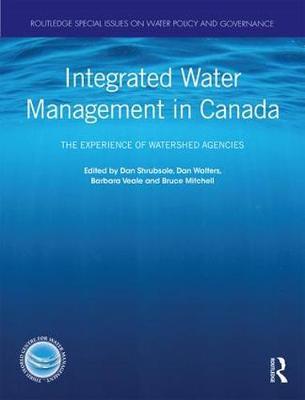The responsibility for implementing integrated watershed management in Canada is fragmented. Each province and territory has developed unique approaches or governance models to guide decision making. A new book, Integrated Water Management in Canada: The Experience of Watershed Agencies, co-edited by Water Institute member Bruce Mitchell, chronicles the insight of front-line water managers of watershed-based agencies in provinces from British Columbia to Newfoundland and Labrador across Canada. This edited volume, with chapters originally published in the International Journal of Water Resources Development, provides insight into Canadian best-practices for achieving success and addressing barriers to integrated water management.

- There is a need to balance a focus on the big picture, as well as to determine the appropriate scale and scope of planning activities in order that feasible and effective solutions can be effectively implemented.
- Three types of integration are popular with the agencies included in the book: 1) among environment, economy and society, 2) between people and the environment and 3) among administrative activities.
- Much more attention is required to achieve effective engagement from and with Indigenous communities.
Co-editors are Dan Shrubsole (Western University), Dan Walters (Nipissing University) and Barbara Veale (Halton Conservation).
Mitchell, a distinguished professor emeritus in the Department of Geography and Environmental Management at the University of Waterloo, commented that the four co-editors were pleased to have the chapters authored by practitioners and academics all with direct experience in planning and implementation of integrated water management.
Read the full book description and find order information on Google Books.